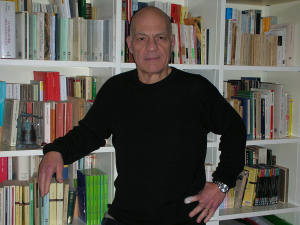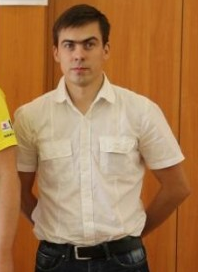 Two weeks ago I started a class of bridge at Ascoli Piceno’s Circolo Cittadino (City Club); my three pupils, Cinzia, Giampaolo and Valentina didn’t know anything of the game, it was their very first time at the table. I dealt a deck, turning up the last card, and I started to explain the Whist. I pointed out that it needed to carefully watch and remember any card. Later, at home, I received an email from Giampaolo; he wrote about card memorizing and asked me:
Two weeks ago I started a class of bridge at Ascoli Piceno’s Circolo Cittadino (City Club); my three pupils, Cinzia, Giampaolo and Valentina didn’t know anything of the game, it was their very first time at the table. I dealt a deck, turning up the last card, and I started to explain the Whist. I pointed out that it needed to carefully watch and remember any card. Later, at home, I received an email from Giampaolo; he wrote about card memorizing and asked me:
…Are there techniques to develop some specific memory?… Could be possible to make a choice of what might be more useful to memorize?
In my opinion, Giampaolo’s asking dealt with a main key of bridge thinking, and it deserved many responses, not one only; therefore I forwarded it to others. Today the responses from Catherine D’Ovidio, Karlis Rubins, Jill Levin, Federica Buttò and Rose Meltzer.
 Catherine D’Ovidio – I began to play cards very young (about 6 years old) with my parents, not bridge but other games which need to memorize cards. You know that nothing is impossible when you are very young… For people who start later than I did, I think the best way is to play as often as possible. They also can try with a pack of 16 cards: only figures, put them in 4 lines in any order (face hidden) look at them only once, and try to put them in order. It is a very good training.
Catherine D’Ovidio – I began to play cards very young (about 6 years old) with my parents, not bridge but other games which need to memorize cards. You know that nothing is impossible when you are very young… For people who start later than I did, I think the best way is to play as often as possible. They also can try with a pack of 16 cards: only figures, put them in 4 lines in any order (face hidden) look at them only once, and try to put them in order. It is a very good training.
 Karlis Rubins – I use a technique to memory cards in following manner: 1. Deal 13 cards 2. Pick them up and sort as you normally do 3. Look at them for 10-15 seconds 4. Put them down and name them, including all small cards. This is better to do by pairs; it is some fun for kids and some competition too.
Karlis Rubins – I use a technique to memory cards in following manner: 1. Deal 13 cards 2. Pick them up and sort as you normally do 3. Look at them for 10-15 seconds 4. Put them down and name them, including all small cards. This is better to do by pairs; it is some fun for kids and some competition too.
 Jill Levin – I learned to count cards by playing hearts when I was young. I think it is easiest to start by counting one suit in permutations of 13. “I have 5 dummy has 3 so there are 5 out. If they both follow twice…” . For specific cards gin would be helpful.
Jill Levin – I learned to count cards by playing hearts when I was young. I think it is easiest to start by counting one suit in permutations of 13. “I have 5 dummy has 3 so there are 5 out. If they both follow twice…” . For specific cards gin would be helpful.
 Federica Buttò – Your student put a very good issue and the answer is by no means easy. I don’t have a specific technique, I try to focus upon what I think would be important in playing and counterplay. Sure it needs to learn what might be important to remember and what could be neglected instead (in order to avoid straining the mind that much). Of course it needs training and concentration to do this. And, if I really don’t remember something, I rely in reasoning.
Federica Buttò – Your student put a very good issue and the answer is by no means easy. I don’t have a specific technique, I try to focus upon what I think would be important in playing and counterplay. Sure it needs to learn what might be important to remember and what could be neglected instead (in order to avoid straining the mind that much). Of course it needs training and concentration to do this. And, if I really don’t remember something, I rely in reasoning.
I don’t know how much this might help, but when I was a pupil, one of my masters, Giuseppe Failla, made me make a game to develop the memory. He took a deck and put the cards face up on the table, and I had to guess their order: he started with two cards, picked them up and if I guessed the sequence he turned up the third, then the fourth, and so on… [Editor Note: this method has been depicted also by Michael Lawrence in his response]
 Rose Meltzer – There are those who, by nature, are blessed with good memory skills. For those who are not, there are several different exercises one can use to greatly improve the art of memory. There is a website called lumosity.com, which has many games/exercises geared toward this. So, if you’re asking about developing techniques, they definitely exist.
Rose Meltzer – There are those who, by nature, are blessed with good memory skills. For those who are not, there are several different exercises one can use to greatly improve the art of memory. There is a website called lumosity.com, which has many games/exercises geared toward this. So, if you’re asking about developing techniques, they definitely exist.
***
Memorizing at Bridge – by Paolo Enrico Garrisi
Part 4: “Exercises”
